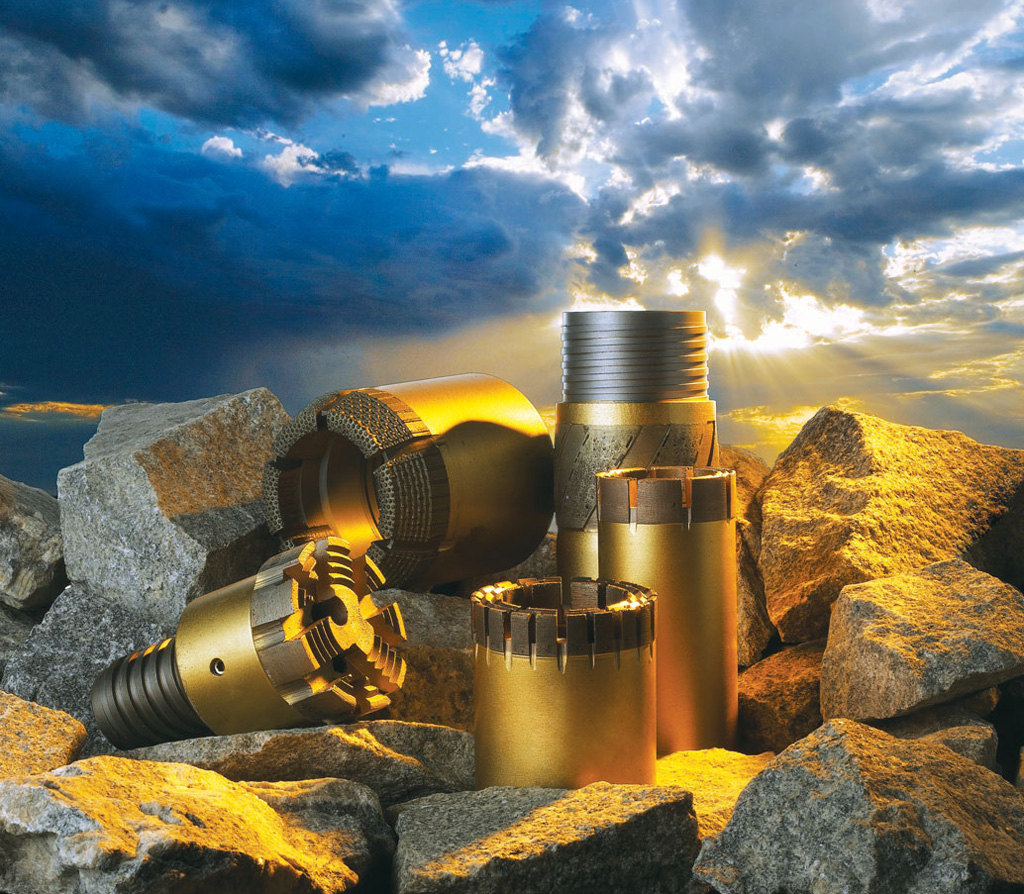

Geochemical methods in deep mineral exploration
27 July 2020 - 31 July 2020
Purpose and intended learning outcomes
This course intends to provide insight in latest technology and data interpretation of integrated geochemical studies in boreholes and on drillcore, drill cuttings and fluids. Participants will learn to choose appropriate geochemical methods in mineral explorations and at the same time to integrate down-the-hole methods with investigations on cores, pulps and fluids. The course will provide a systematic understanding of the geological axis in exploration of ore deposits.
Prerequisites
University bachelor level in Earth sciences or equivalent.
Time plan
1 week field/lab class (27. – 31.07.2020)
Venue for field/lab work
COSC-2 drill site (Jämtland), Sweden.
Content and modules
The following teaching activities will be included in the course:
Classroom (CR) and at borehole or lab (LAB)
Module 1
Downhole geochemistry (1½ full days)
- Determination of elements in rocks utilizing geophysical sondes (CR)
- Measuring While Drilling/Logging While Drilling (CR)
- Measurements while pipe tripping (LAB)
- Wireline measurements (LAB)
- Spectroscopy in the well (natural spectral gamma (U, Th, K), x-ray fluorescence, neutron activation, hyperspectral methods (CR)
- Geological and lithological interpretation (CR)
- Utilizing element data to determine ore content (CR)
Module 2
Fluid geochemistry (1 full day)
- Occurrence and distribution of volatiles in rocks (CR)
- Measuring fluid composition (LAB)
- Online analyses of fluids while drilling (LAB)
- Interpretation of fluids in lithological and structural context (CR)
Module 3
Drill core and cutting analyses (1½ full days)
- Classical field petrography and ore mineralogy (LAB)
- Optical core scanning (LAB)
- XRF core methods, core box screening, high-resolution scans (LAB)
- Hyperspectral core methods (LAB)
- CT core methods, structural and mineral (dual energy) interpretation (CR)
- Cutting analyses, bit metamorphosis (LAB)
Module 4
Integration of downhole and sample data (CR)
- Geological assessment of deposits, reserves from reconnaissance, prospection to exploration (CR) (1/2 day)
Attendees will receive a full documentation of the course content including all slides shown as well as references to key publications on the subjects taught
Instruction
Naked eye inspection of cores or rock samples, microscopy basics.
Assessment
Written tests at the end of each of the major blocks (1+2, 3 and 4).
Course responsible teachers
Ulrich Harms (GFZ Potsdam), Jochem Kück (GFZ Potsdam), Thomas Wiersberg (GFZ Potsdam)
Admission
Following general admission guidelines. This course must be combined with the drilling and coring course elements.
Practicalities
Application criteria and priority
- A diverse mix of participants is desired.
- Priority will be given to students affiliated with EIT Raw Material organizations, but applications are welcomed from other academic institutions and industry.
- Course size is limited to 16 participants.
- Apply here.
Accommodation (room and board)
Approximate accommodation: Maximum 50 Euros per day.
Travel
Arrival/departure will be coordinated. The following options exist:
- Air travel to Åre-Östersund airport (OSD), about 1 h drive to Järpen.
- Train to Järpen railway station.
S+H, insurance, Safety equipment and clothing
Insurance required for field work. Safety equipment will be provided.
Course stipends
Successful admissions will be considered for a stipend to offset costs of accommodation and food, and when possible travel. As a requirement the stipends are awarded to participants that are registered for all courses within one theme. Applicants that intend only to participate in a single course (or two courses) within one theme will not be considered for stipends. There is no registration fee to participate in courses offered through I-EDDA-RS.
